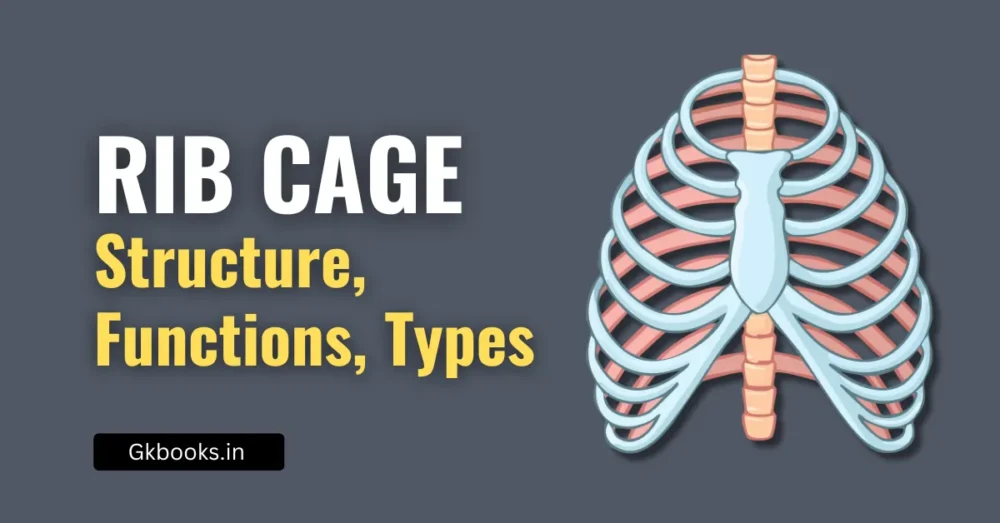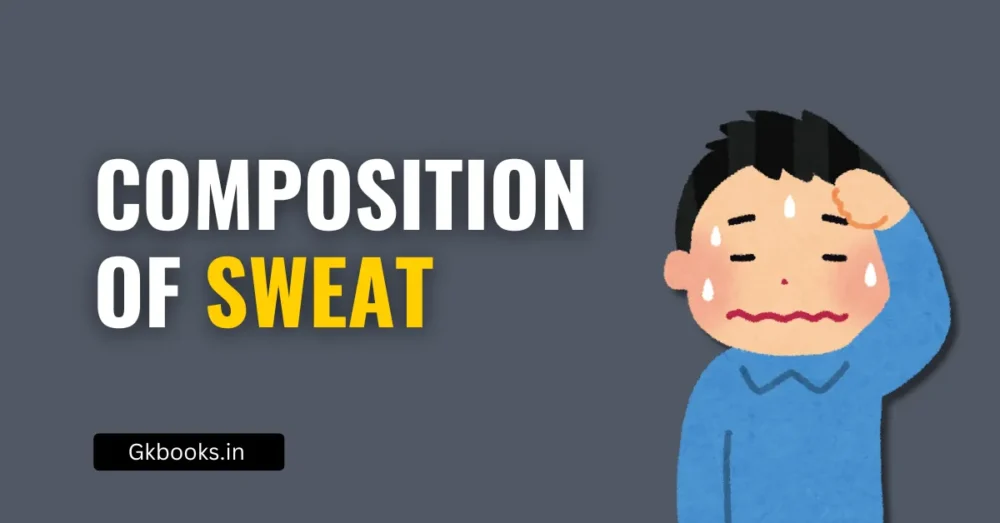You might be wondering, “Why is saliva important for my exams?” Well, competitive exams often ask questions about the human body and its functions, and digestion is a big topic. Understanding the role of saliva is a key piece of that puzzle. So, let’s learn all about this amazing liquid!
Digestion is the process through which the food we eat is broken down into simpler substances so that our body can absorb and use them. The digestive journey begins in the mouth, and the hero of this first step is saliva.
Let’s dive deep and learn how saliva helps in digestion, in a simple and exam-oriented way!
What is Saliva?
◾ Saliva is a watery fluid produced by the salivary glands in our mouth.
◾ An adult produces about 1 to 1.5 litres of saliva every day!
Where is Saliva Produced?
| Name of Gland | Location | Type of Saliva |
|---|---|---|
| Parotid Gland | Near the ears | Watery and enzyme-rich |
| Submandibular Gland | Under the lower jaw | Mixed (watery + thick) |
| Sublingual Gland | Under the tongue | Thick and sticky (mucus-rich) |
Composition of Saliva
Saliva is made of:
◾ Water (99%) – Keeps the mouth moist.
◾ Salivary enzymes – Helps in chemical digestion.
◾ Mucus – Makes food soft and easy to swallow.
◾ Antibodies and antibacterial agents – Help fight germs.
◾ Electrolytes – Maintain pH balance and help in digestion.
Main Functions of Saliva in Digestion
Imagine your favorite food – a delicious pizza, a juicy apple, or a crunchy biscuit. Before you even take the first bite, your body is already getting ready to digest it. And who’s one of the first responders in this amazing process? You guessed it – saliva!
Saliva is a clear liquid made in your mouth by special glands called salivary glands. You produce about 1 to 1.5 liters of saliva every single day! That’s a lot, right? But it’s all for a good reason.
Let’s break down the super important jobs saliva does to help your body break down food.
1. The “Wetting” Agent: Making Food Easy to Swallow
Have you ever tried to swallow a very dry piece of bread without drinking water? It’s tough, isn’t it? That’s where saliva comes in!
- Lubrication: Saliva is mostly water, and it acts like a natural lubricant. When you chew your food, saliva mixes with it, making it soft and moist.
- Forming a Bolus: This moist, chewed-up food then forms a soft, rounded ball called a bolus. Think of it like making a dough ball – it’s much easier to push down your throat! Without saliva, swallowing would be a difficult and even painful task.
2. The “Taste Enhancer”: Helping You Enjoy Your Food
Do you know that without saliva, you wouldn’t be able to taste your food properly? It’s true!
- Dissolving Flavors: Our taste buds, located on our tongue, can only detect flavors when the food molecules are dissolved in a liquid. Saliva does exactly that! It dissolves the chemicals in your food, allowing your taste buds to send signals to your brain, telling you how delicious your food is.
- Appetite Stimulation: When you smell or even think about tasty food, your mouth waters. This increased saliva production is your body getting ready to taste and enjoy!
3. The “First Responder” Enzyme: Starting Digestion
This is where things get really interesting for competitive exams! Saliva isn’t just water; it contains special chemicals called enzymes. Enzymes are like tiny workers that help break down complex food molecules into simpler ones.
The most important enzyme in saliva is salivary amylase (also known as ptyalin).
- Carbohydrate Digestion: Salivary amylase begins the digestion of complex carbohydrates (like starch, found in bread, rice, or potatoes) into simpler sugars (like maltose).
- Not Complete Digestion: Remember, this is just the beginning of digestion. Salivary amylase works for only a short time in the mouth and then in the esophagus. Once the food reaches the highly acidic stomach, this enzyme becomes inactive. The main carbohydrate digestion happens later in the small intestine.
Here’s a simple way to think about it:
| Food Type | Enzyme in Saliva | What it Breaks Down |
|---|---|---|
| Starch | Salivary Amylase | Into simpler sugars |
4. The “Protector”: Keeping Your Mouth Healthy
Saliva does much more than just help with digestion; it’s also a fantastic protector of your mouth and teeth!
- Cleaning Agent: Saliva constantly washes away food particles and debris from your teeth and gums. This helps prevent cavities and gum disease.
- Antibacterial Properties: Saliva contains substances like lysozyme and antibodies that help kill harmful bacteria and fungi in your mouth. This acts as your body’s natural defense against infections.
- Neutralizing Acids: When you eat, especially sugary or acidic foods, bacteria in your mouth produce acids that can harm your tooth enamel. Saliva helps to neutralize these acids, protecting your teeth from decay.
- Remineralization: Saliva contains minerals like calcium and phosphate, which help to repair and strengthen tooth enamel, a process called remineralization.
5. The “Speech Helper”: Enabling Communication
While not directly related to food digestion, saliva plays a vital role in our ability to speak clearly.
- Moistening Tissues: Saliva keeps the tissues in your mouth, tongue, and throat moist. This lubrication allows your tongue and lips to move smoothly, helping you form words and sounds correctly. Try talking with a very dry mouth – it’s tough!
Quick Recap: The Power of Saliva!
Let’s quickly summarize the amazing jobs saliva does:
- Wetting and lubricating food for easy swallowing.
- Dissolving food particles to help you taste.
- Starting the digestion of carbohydrates with salivary amylase.
- Protecting your mouth and teeth from bacteria and acids.
- Helping you speak clearly.
Summary Table – Role of Saliva in Digestion
| Function | Description |
|---|---|
| Moistens Food | Makes food soft and easy to swallow |
| Breaks Down Starch | Converts starch into sugar using salivary amylase |
| Helps in Tasting | Dissolves food for taste bud detection |
| Protects Against Germs | Contains antibacterial properties |
| Cleans the Mouth | Removes food particles and protects teeth |
✅ Exam-Friendly Key Points
Here are some quick facts you can remember for your exams:
- 🧪 Saliva starts digestion in the mouth.
- 🧬 Contains enzyme salivary amylase (also called ptyalin).
- 🍞 Breaks starch into maltose (a type of sugar).
- 🦠 Has antibacterial action – protects teeth and gums.
- 💧 Helps in forming the food bolus for easy swallowing.
Why is This Important for Your Exams?
Competitive exams often test your knowledge of basic science and the human body. Questions about digestion, enzymes, and the functions of different organs are common. Knowing the detailed role of saliva shows a strong understanding of how the digestive system works from the very first bite!
Here are some common question types you might encounter:
- “Which enzyme is present in saliva and what does it digest?” (Answer: Salivary amylase, carbohydrates/starch)
- “What is the function of saliva in forming a bolus?” (Answer: To moisten and lubricate food for easy swallowing)
- “Name two protective functions of saliva.” (Answer: Cleaning teeth, antibacterial action, neutralizing acids)
Keep Learning, Keep Growing!
You’re doing an amazing job by taking the time to learn these important details. Every small piece of information you grasp brings you closer to your goals. Remember, consistency and a positive attitude are your best friends on this journey.
Keep practicing, keep revising, and keep believing in yourself! You’ve got this! Good luck with your competitive exams!
Frequently Asked Questions (FAQs)
🔹Q1. Which enzyme is present in saliva?
Ans: Salivary amylase (also called ptyalin).
🔹Q2. What is the function of salivary amylase?
Ans: It breaks down starch into simple sugars like maltose.
🔹Q3. What is a bolus?
Ans: A soft ball-like mass of chewed food mixed with saliva, ready to be swallowed.







